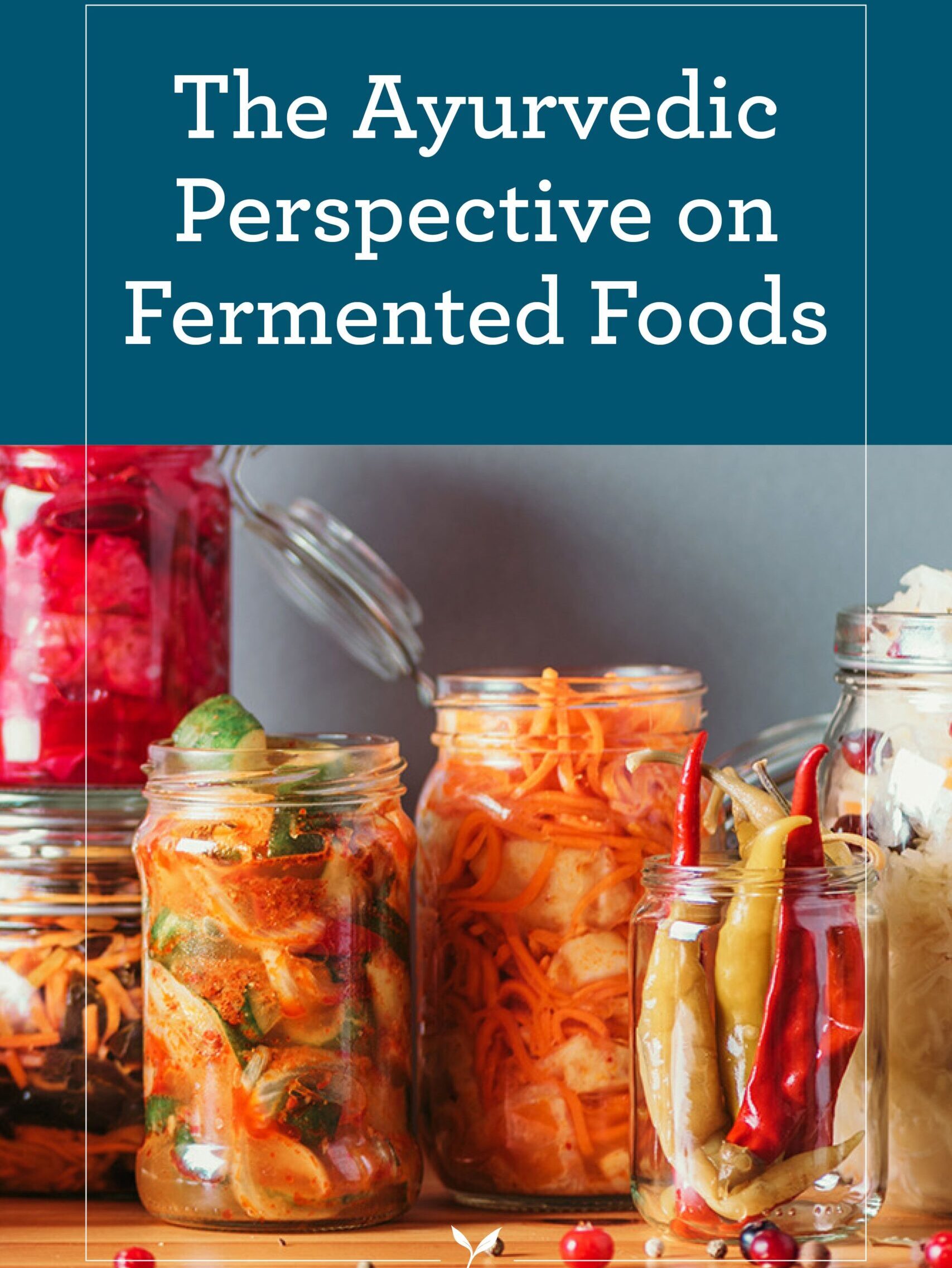Ayurvedic fermentation is an ancient practice designed to enhance health and vitality through naturally fermented foods. These foods, rich in probiotics, boost digestion, support immunity, and promote overall well-being. In this post, we’ll delve into the Ayurvedic concept of fermentation, the benefits it offers, and details about key fermented foods to include in your diet.
What is Ayurvedic Fermentation?
In Ayurveda, fermentation is a natural process where beneficial microorganisms transform food components into nutrient-rich, easily digestible forms. This process aligns with Ayurvedic principles by enhancing food potency, balancing the three doshas (Vata, Pitta, Kapha), and promoting gut health.
Benefits of Ayurvedic Fermentation
- Improves Gut Health
Fermented foods like kanji and pickles foster a healthy gut microbiome, improving digestion and nutrient absorption. - Strengthens Immunity
Probiotics from fermented foods enhance gut flora, which plays a vital role in supporting immunity and overall resilience. - Balances Doshas
Fermented foods can cool or warm the body, making them suitable for balancing different doshas depending on the type. For more on balancing your doshas and understanding how Ayurveda works to harmonize your body and mind, read our article on Understanding the Three Doshas. - Enhances Detoxification
These foods help cleanse toxins (ama) from the body, facilitating a natural detox process.
Detailed Overview of Ayurvedic Fermented Foods
1. Kanji
- Ingredients: Black carrots, mustard seeds, water, and Himalayan salt.
- Preparation: Slice black carrots and ferment them in water with mustard seeds and salt for 3–5 days.
- Benefits: Cooling in nature, kanji supports digestion, detoxifies the body, and balances Pitta dosha.
2. Idli and Dosa
- Ingredients: Rice and urad dal (black gram).
- Preparation: Soak and grind rice and dal into a batter. Ferment overnight and steam (for idli) or pan-fry (for dosa).
- Benefits: Light and easy to digest, they are excellent for maintaining gut health and balancing Vata dosha.
3. Pickled Vegetables
- Ingredients: Seasonal vegetables, mustard oil, salt, and spices like turmeric and fenugreek.
- Preparation: Marinate vegetables in a mixture of oil, salt, and spices, then allow to ferment in sunlight for several days.
- Benefits: Packed with enzymes and probiotics, they enhance digestion and support Kapha dosha balance.
4. Buttermilk (Takra)
- Ingredients: Yogurt, water, and spices like cumin and coriander.
- Preparation: Churn yogurt with water and season with cooling spices.
- Benefits: Aids digestion, calms Pitta dosha, and provides a refreshing probiotic beverage.
How to Incorporate Fermented Foods into Your Diet
- Morning: Start your day with a glass of kanji or takra to stimulate digestion.
- Meals: Add pickled vegetables to lunch for enhanced flavors and gut health.
- Snacks: Enjoy idli or dosa as a light, nutrient-dense snack.
The Science Behind Fermentation
Modern studies confirm the benefits of fermented foods, emphasizing their role in enhancing gut health, boosting immunity, and even improving mental health. This harmony between Ayurvedic wisdom and scientific research highlights why fermentation remains a cornerstone of holistic health practices.
For further reading on probiotic benefits, visit this research article.
Conclusion
Ayurvedic fermentation offers a timeless solution for better health through the power of probiotics. By including kanji, pickled vegetables, buttermilk, and other fermented foods in your diet, you can improve digestion, boost immunity, and achieve dosha balance. Start incorporating these foods into your lifestyle today and unlock the benefits of this ancient practice for holistic well-being.



